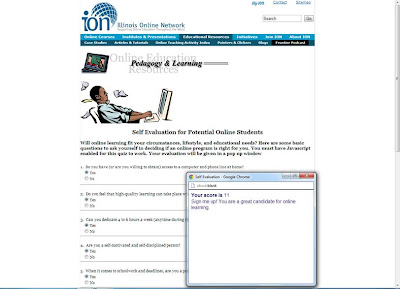How can we take advantage of
technological developments in order to create and source relevant learning
resources for our students?
I wasn't sure what I wanted
to search for but I’d just come out of a meeting about Visiting Students and
Studying Abroad and how we can improve the student experience for these
students. Two of the many areas we
discussed were ‘Global Citizenship’ and ‘Employability’ and how the information
and support can be delivered to enhance these aspects.
So I decided to search for useful resources in one of these areas to ‘identify appropriate digital resources, including text-based, multimedia and interactive, for particular learning contexts’ although I’m looking at it from a general HE perspective rather than a particular learning context.
So I decided to search for useful resources in one of these areas to ‘identify appropriate digital resources, including text-based, multimedia and interactive, for particular learning contexts’ although I’m looking at it from a general HE perspective rather than a particular learning context.
Jorum
Search term ‘Global Citizenship’
The top result was a resource from the University of Southampton which was relevant and part of a course Teaching Citizenship in HE. There was lots of good resources although mainly text and images.
http://www.southampton.ac.uk/citizened/activities/global_citizenship/index.html
The top result was a resource from the University of Southampton which was relevant and part of a course Teaching Citizenship in HE. There was lots of good resources although mainly text and images.
http://www.southampton.ac.uk/citizened/activities/global_citizenship/index.html
The second resource was a recording of a lecture from the
Royal Veterinary College. The content
looked very interesting and the lecture itself would have been interactive using
a voting system but the playback using Echo360 was very slow.
http://www.rvc.ac.uk/Review/GlobalCitizens.cfm
http://www.rvc.ac.uk/Review/GlobalCitizens.cfm
Open University – Open Learn
Search term ‘Global Citizenship’
The top result was a link to a module entitled Enacting European Citizenship (ENACT).
It is part of a Money & Management course and wasn’t a learning resource.
All of the other results on the first page were part of the same module.
So I searched on the sidebar under education and the results showed a module Teaching citizenship: Work and the economy. Presumably to access the learning resources you have to enrol onto the module.
http://www.open.edu/openlearn/education/teaching-citizenship-work-and-the-economy/content-section-1
The top result was a link to a module entitled Enacting European Citizenship (ENACT).
It is part of a Money & Management course and wasn’t a learning resource.
All of the other results on the first page were part of the same module.
So I searched on the sidebar under education and the results showed a module Teaching citizenship: Work and the economy. Presumably to access the learning resources you have to enrol onto the module.
http://www.open.edu/openlearn/education/teaching-citizenship-work-and-the-economy/content-section-1
YouTube
Search term ‘Global Citizenship’
This search produced lots of results although not millions. I filtered the search to include only those in the last year. I watched two or three and they were very interesting. There were quite a few TEDx ones.
Search term ‘Global Citizenship’
This search produced lots of results although not millions. I filtered the search to include only those in the last year. I watched two or three and they were very interesting. There were quite a few TEDx ones.
So the questions:
How easy was it to find a relevant resource? It was easy to find the resources and I think that they were relevant because I managed to find course specific, sector specific resources as well as general ones.
How easy was it to find a relevant resource? It was easy to find the resources and I think that they were relevant because I managed to find course specific, sector specific resources as well as general ones.
How could you incorporate this resource into your professional practice?
For the purposes of finding a resource that could be used for Student
information Points and Enhancing the Student Experience then they were suitable
as a starting point and to create a general learning resource.
Which source did you find more useful (and why) – the ‘official’
resource bank or the open search? Both
the official and the open search were useful.
The official ones were very text / image based and straightforward but
the Jorum ones were easy to find and relevant. The YouTube videos were more engaging
but if may not match specific learning outcomes.
Are there any limitations to the use of your preferred resource for your learners (e.g. copyright licence; login requirements)? The Open Learn resource required a login which you would do if you knew that you definitely needed that resource and had been directed to it but when browsing it’s probably a barrier.
Are there any limitations to the use of your preferred resource for your learners (e.g. copyright licence; login requirements)? The Open Learn resource required a login which you would do if you knew that you definitely needed that resource and had been directed to it but when browsing it’s probably a barrier.
Would your own students agree that the resource you prefer is
accessible? I think that most students would agree that the videos were
accessible and the websites easy to navigate.

